Rispondi al commento
Untitled
LORETTA CHASE : YOUR SCANDALOUS WAYS
Loretta Chase has accepted to be interviewed by us for the release of her latest "Fallen Women" series's novel, YOUR SCANDALOUS WAYS, and has authorised us to translate an excerpt of the book. Enjoy !
Loretta Chase ha accettato di venire intervistata da noi in occasione della pubblicazione del suo ultimo romanzo della serie "Fallen Women", YOUR SCANDALOUS WAYS, e ci ha permesso di tradurre un estratto del romanzo. Buona lettura!
Loretta Chase will answer to all your questions, so don't forget to sign your comment with a name or a nickname
Loretta Chase risponderà a tutte le vostre domande, perciò non perdete l'occasione di chiacchierare con lei, ricordatevi solo di firmare il vostro commento con un nome o un nick
 James Cordier is all blueblood and entirely dangerous. He's a master of disguise, a brilliant thief, a first class lover--all for King and country--and, by gad, he's so weary of it. His last mission is to “acquire” a packet of incriminating letters from one notorious woman. Then he can return to London, and meet sweet-natured heiresses--not adventuresses and fallen women.
James Cordier is all blueblood and entirely dangerous. He's a master of disguise, a brilliant thief, a first class lover--all for King and country--and, by gad, he's so weary of it. His last mission is to “acquire” a packet of incriminating letters from one notorious woman. Then he can return to London, and meet sweet-natured heiresses--not adventuresses and fallen women.
Francesca Bonnard has weathered heartbreak, scorn, and scandal. She’s independent, happy, and definitely fallen; and she's learned that “gentlemen” are more trouble than they're worth. She can also see that her wildly attractive new neighbor is bad news.
But as bad as James is, there are others far worse also searching for Francesca's letters. And suddenly nothing is simple--especially the nearly incendiary chemistry between the two most jaded, sinful souls in Europe. And just as suddenly, risking everything may be worth the prize.
James Cordier è nobile fino al midollo e totalmente pericoloso. E' un maestro del travestimento, un ladro brillante, un amante di prima classe -- tutto per il re e per il paese -- e perdio, è così stanco di tutto ciò. La sua ultima missione consiste nel recuperare un pacco di lettere incriminanti da una donna famosa. Dopo di che può tornare a Londra, incontrare una dolce ereditiera -- non avventuriere e donne perdute.
Francesca Bonnard ha superato un cuore spezzato, il disprezzo e lo scandalo. E' indipendente, felice e definitivamente perduta; e ha imparato che i "gentiluomini" causano più problemi di quanto ne valga la pena. Si rende anche conto del fatto che l'arrivo del suo nuovo e pericolosamente attraente vicino è una gran brutta novità.
Ma per quanto cattivo sia James, ci sono altri che sono molto peggio, anche loro alla ricerca delle lettere di Francesca. E all'improvviso nulla è semplice -- specialmente l'infuocata attrazione tra le due anime più annoiate e peccaminose d'Europa. E altrettanto all'improvviso, rischiare il tutto per tutto può valere il prezzo.
INTERVIEW - INTERVISTA
 - In June Loretta Chase's new book will be released and guess what?...the new hero will be a fascinating half italian secret agent, James Cordier, and the heroine will be a true naughty girl! Francesca Bonnard.
- In June Loretta Chase's new book will be released and guess what?...the new hero will be a fascinating half italian secret agent, James Cordier, and the heroine will be a true naughty girl! Francesca Bonnard.
Loretta, can you tell us more about these new intriguing characters?
The James Bond movie Casino Royale inspired this book. It made think, "What if I create an early 19th century version of 007?" But my hero had to be different from James Bond. So I gave him an Italian mother, and thus a soul that is half Italian, and a distinctive continental sophistication. Still, he's English, too. As Francesca sees him, "At one moment he was indisputably Italian; in the next, incurably English." In addition to being handsome, sexy, passionate, and romantic, it's important for the hero to be unlike the other men she knows. He must be something special to hold her attention--because Francesca is a courtesan, the most popular one in Europe. She's so special that only a very few men have enjoyed the privilege of being her lover. It's an expensive privilege: Francesca does love nice jewelry. <g> She's naughty--unabashedly so--and I love this about her. She has power over men and she's enjoying herself. This exuberance and humor and confidence captivates James. He's spent years in a profession that has a very dark side--and she lightens his heart.
- A Giugno uscirà il nuovo libro di Loretta Chase, e indovinate... il nuovo eroe sarà un affascinante agente segreto mezzo italiano, James Cordier, e l'eroina una vera cattiva ragazza! Francesca Bonnard.
Loretta, puoi raccontarci qualcosa su questi nuovi intriganti personaggi?
E' stato il film di James Bond Casino Royale ad inspirarmi per questo libro. Mi ha fatto pensare, "E se creassi una versione di 007 dell'inizio del XIX secolo?". Il mio eroe però doveva essere diverso da James Bond. Così gli ho dato una madre italiana, in questo modo un animo per metà italiano e una raffinatezza tipicamente continentale, pur essendo anche inglese. Così come Francesca lo vede, "Un momento è ineluttabilmente Italiano; il successivo incurabilmente Inglese". Oltre ad essere bello, sexy, passionale e romantico, è importante che l'eroe si distingua dagli altri uomini che lei conosce. Deve essere speciale per catturare la sua attenzione -- perchè Francesca è una cortigiana, la più famosa d’Europa. Ed è così speciale che solo pochissimi uomini hanno avuto il privilegio di essere suoi amanti. E' un privilegio molto costoso: Francesca ama i bei gioielli, he he. E' una cattiva ragazza-- in modo imperturbabile -- e a me piace molto questo suo tratto. Ha potere sugli uomini e si diverte. Questa sua esuberanza, unita a umorismo e sicurezza catturano James. Ha trascorso anni dedicandosi a una professione che possiede un lato molto oscuro—e lei lo tira su di morale.
- This book is the second one in your new Fallen Women series, is it somehow connected to the first one, "Not Quite a Lady", and to the future ones? Where did you get the idea for this series from?
Actually, it was my agent's idea. <g> She seems to know instinctively what will inspire me. History shows us many different ways for women to become "fallen." They were ostracized for having a love affair
or bearing a child out of wedlock or being divorced--or even if people merely suspected they'd misbehaved. (Men could do the same things and not get into trouble!) Each of the ways to be "fallen" offers a way to create a different heroine and a different story, some connected to other stories, and some not. Then the fun is in showing how the heroine deals with her problem and even triumphs over it. She has to be a strong woman, yet she's going to be wounded inside: She'll be mistrustful of men and cynical about love. The hero's challenge is not simply to make her hot for him (that goes without saying, because the hero has to be hot, right?) or even to love him--the tricky part is making her trust him.
- Questo libro è il secondo della tua nuova serie Fallen Women, è in qualche modo collegato al primo, "Not Quite a Lady", e a quelli futuri? Da dove ti è venuta l'idea di questa serie?
A dire il vero è stata un'idea della mia agente, he he Sembra sapere istintivamente quello che mi ispira. La storia ci mostra molti modi diversi in cui le donne potevano diventare "donne perdute". Venivano ostracizzate se avevano una relazione o se rimanevano incinte al di fuori del matrimonio, o se divorziavano -- o anche soltanto se la gente sospettava che si fossero comportate male. (Gli uomini potevano fare le medesime cose senza avere alcun problema!). Ognuno di questi modi per diventare "perdute" offre uno spunto per creare un'eroina diversa e una storia diversa, alcune collegate ad altre, alcune no. A quel punto il divertimento sta nel mostrare come l'eroina affronta con i suoi problemi e alla fine ha la meglio su di essi. Deve essere una donna forte, ma è anche ferita nell'anima: non riuscirà a credere agli uomini e sarà cinica nei confronti dell'amore. La sfida che l'eroe deve affrontare non è semplicemente farle perdere la testa per lui (questo va da sé, perchè l'eroe deve far perdere la testa, giusto?) o far sì che arrivi perfino ad amarlo -- la parte più difficile è far in modo che lei abbia fiducia in lui.
- James and Francesca's story takes place in Venice, Italy, in 1820.
Why did you choose to set this book in Italy? And why Venice, among all cities?
As many people know, I have a special place in my heart for Italy: language, arts & culture, men..and shoes (Or should shoes be in the culture category? <g>) It wasn't hard to tempt me to write a story set there--and Casino Royale did it: The movie not only gave me the idea for a hero but made me curious about Venice. Since Lord Byron had lived there, I read his letters and journals. Then I studied the city's history, and became completely fascinated. By 1820 the Republic's former greatness is a sad, distant memory. It's suffered misfortune and degradation. Yet it's resilient, like my heroine. And like her, it's fun. Though many of its treasures have been plundered, so much remains. It's still beautiful and mysterious and it's like no other city in the world. For Byron, it was a refuge. He'd left England because of scandal, and Venice, the most tolerant
of cities, welcomed him. Old and wicked as it was, for him it was a place of renewal, where he began writing his best work. It was perfect for James and Francesca. I knew Venice would enchant their jaded souls.
- La storia di James e Francesca è ambientata in Venezia, Italia, nel 1820. Come mai hai scelto di ambientare questo libro in Italia? E perchè tra tutte le città hai scelto proprio Venezia?
 Come molte persone sanno, ho un posto speciale nel mio cuore per l'Italia: la lingua, l'arte e la cultura, gli uomini... e le scarpe (O le scarpe rientrano nella categoria della cultura? hehe). Non era difficile indurmi in tentazione perchè scrivessi una storia ambientata in Italia -- e Casino Royale ha fatto questo: Il film non solo mi ha dato l'idea per un eroe ma mi ha resa curiosa su Venezia.
Come molte persone sanno, ho un posto speciale nel mio cuore per l'Italia: la lingua, l'arte e la cultura, gli uomini... e le scarpe (O le scarpe rientrano nella categoria della cultura? hehe). Non era difficile indurmi in tentazione perchè scrivessi una storia ambientata in Italia -- e Casino Royale ha fatto questo: Il film non solo mi ha dato l'idea per un eroe ma mi ha resa curiosa su Venezia.
Poichè che Lord Byron visse lì, ho letto le sue lettere e i suoi diari. Poi ho studiato la storia della città, e ne sono stata completamente affascinata. Nel 1820 la potenza della precedente Repubblica era solo un lontano ricordo. La città aveva subito sfortuna e degrado. E tuttavia resiste, come la mia eroina. E come lei, si diverte. Benché sia stata depredata di molti dei suoi tesori, vi rimane ancora così tanto. E' ancora bellissima e misteriosa come nessun'altra città al mondo. Per Byron fu un rifugio. Aveva lasciato l'Inghilterra a causa di uno scandalo, e Venezia, la città più tollerante di tutte, lo ha accolto.
Nonostante fosse antica e immorale, per lui fu un luogo di rinascita, dove iniziò a scrivere i suoi lavori migliori. Era perfetta per James e Francesca. Sapevo che Venezia avrebbe incantato i loro animi stanchi.
- Was it difficult to do all the historical research work on this specific setting?
I love research, even when it's difficult. Along with Lord Byron's letters and journals, I consulted his friend Hobhouse's diary. I found old travel guides and travelers' accounts online. Books as well as the internet
made it easy to find pictures of the outside part of Venice--canals, gondolas, churches, civic buildings, and palazzi. Interiors were far less plentiful--but this is true of most settings, including England. Luckily,
one of the readers at the Word Wenches blog suggested Venetian Palazzi (by Trivellato, Mazzariol, and Dorigato; ISBN 3-8228-7050-1)--magnificent photographs of rooms. I watched DVD tours of Venice. I even went to YouTube to find out how loud the bells were in the Campanile...because a steamy scene happens there and I needed to make sure the characters wouldn't go deaf. ;-)
- E' stato difficile fare tutte le ricerche storiche su questa particolare ambientazione?
Amo fare ricerche, anche quando sono difficili. Oltre alle lettere e ai diari di Lord Byron, ho consultato anche il diario del suo amico Hobhouse. Ho trovato vecchie guide turistiche e racconti di turisti online. Anche i libri, come internet, hanno reso semplice trovare foto degli esterni di Venezia -- canali, gondole, chiese, edifici pubblici e palazzi. Per gli interni non c'era molto materiale -- ma questo è altrettanto difficile per quasi tutte le ambientazioni, incluse quelle inglese. Fortunatamente, una delle mie lettrici del Blog Word Wenches suggerì le stupende fotografie di stanze del libro Palazzi Veneziani (di Trivellato, Mazzariol, e Dorigato; ISBN 3-8228-7050-1). Ho guardato un dvd turistico di Venezia. Sono anche andata su YouTube per trovare quanto forte risuonassero le campane del Campanile... perchè lassù si svolge una scena d'amore e dovevo rassicurarmi che i personaggi non diventassero sordi ;-)
- A little challenge for you: comparing Lord Dain to James Cordier.
I'll compare, but don't make me choose between them! Both are half Italian. Both are Alpha males, extremely so. They're tall, dark, and sexy. But psychologically, they're quite different. Cordier is as much
Italian as he is English. He's come from a large, psychologically healthy family. Like Dain, Cordier was the kind of boy who always got into trouble. But Cordier entered the military, where a fighting spirit and love of danger are useful. There his superiors decided he'd make an excellent secret agent. So this man, who was a social misfit and who could have become a criminal, is a hero in the eyes of the British government--and his family is proud of him. Dain had a horrible childhood, and simply had to learn how to live in a world where he was viewed as a monster. Yet both men have a dark side, and need women who can lift their spirits and make them laugh. I think I've given each of them the right woman--and I hope readers agree!
- Una piccola sfida per te: confrontare Lord Dain e James Cordier.
Li confronterò, ma non chiedermi di scegliere tra i due! Entrambi sono mezzi italiani. Entrambi sono maschi Alfa, estremamente Alfa. Sono alti, scuri e sexy. Ma psicologicamente, sono molto differenti. Cordier è tanto Italiano quanto Inglese. Viene da una famiglia numerosa, psicologicamente in salute. Come Dain, Cordier era il tipo di ragazzo che finiva sempre nei guai. Ma Cordier entra nell'esercito, dove il suo spirito combattivo e l'amore per il pericolo diventano utili. Là, i suoi superiori decidono che sarebbe un eccellente agente segreto. Così quest'uomo, che era uno spostato e avrebbe potuto diventare un criminale, viene considerato un eroe dal governo Britannico -- e la sua famiglia è orgogliosa di lui. Dain ha un'infanzia orribile, e ha dovuto imparare a vivere in un mondo dove tutto lo vedevano come un mostro. Entrambi hanno un lato oscuro, e hanno bisogno di donne che possano sollevargli il morale e farli ridere. Penso di aver dato a ciascuno la donna giusta-- e spero che le lettrici siano d'accordo con me!
EXCERPT - ESTRATTO
Venice, that night, at the opera
Though the season had not officially started, the boxes and pit of La Fenice were very nearly filled. This, James was aware, was partly because Rossini’s popular La Gazza Ladra was being performed and partly because Francesca Bonnard and her friends occupied one of the most expensive of the theater’s four tiers of boxes. As many people were looking up at her box as were looking at the stage.
And, this being Italy, many other people were doing neither.
As he well knew, Italian theaters were a different species from those in England. In Italy, theaters were social centers. To accommodate sociable theatergoers, the stairs and refreshment rooms were enormous. The vast foyers had been used until very recently for gambling. Now, with gambling forbidden, theatergoers were reduced to playing backgammon.
During the season, the educated classes attended the theater four or five times a week. Since this was a home away from home, the boxes were large as well, many of them furnished like drawing rooms and used in much the same way. From some, one could barely see the stage.
 During the performance, people ate, drank, and talked. They played at cards, flirtation, and seduction. Servants went in and out. The opera or play provided background color and music, for the most part.
During the performance, people ate, drank, and talked. They played at cards, flirtation, and seduction. Servants went in and out. The opera or play provided background color and music, for the most part.
But at certain important times in the performance--the start of a favorite aria, for instance--the audience became hushed, and attended with all its might.
Such a hush was not in progress as James entered the box where Francesca Bonnard held court. Several parties on stage were screeching and bellowing something or other to which no one was paying the slightest heed.
No one paid James any heed, either. He appeared to be merely one of the several wigged and liveried servants going in and out with this or that: food, wine, a shawl. Playing a servant was easy. Those they served took little notice of them. He might stab the crown prince of Gilenia in the neck in front of a dozen witnesses, and later, not one of those witnesses would be able to identify James as the killer. No one would remember what kind of wig or livery he wore.
He was certain of this, having done away with two pieces of human slime under similar conditions.
Lurenze, however, was merely in the way. Since, given the lady’s reputation, one must expect a male--or several--to be in the way, James preferred the obstacle to be young and not overly intelligent. The French Count Magny, with the advantages of age and experience--which included not losing his head, literally, during the Terror or thereafter--might have proved a more serious obstacle.
James’s attention shifted from the golden-haired boy to the harlot beside him. They sat at the front of the box, Lurenze in the seat of honor at her right. He’d turned in his seat to gaze worshipfully at her. She, facing the stage, pretended not to notice the adoration.
From where he stood, James had only the rear view, of a smoothly curving neck and shoulders. Her hair, piled with artful carelessness, was a deep chestnut with fiery glints where the light caught it. A few loose tendrils made her seem the slightest degree tousled. The effect created was not of one who’d recently risen from bed but one who had a moment ago slipped out of a lover’s embrace.
Subtle.
And most effective. Even James, jaded as he was, was aware of a stirring-up below the belly, a narrowing of focus, and a softening of brain.
But then, she ought to be good at stirring up men, he thought, considering her price.
His gaze drifted lower.
A sapphire and diamond necklace adorned her long, velvety neck. Matching drops hung at her shell-like ears. While Lurenze murmured something in her ear, she let her shawl slip down.
James’s jaw dropped.
The dress had almost no back at all! She must have had her corset specially made to accommodate it.
Her shoulder blades were plainly visible. An oddly shaped birthmark marked the right one.
He pulled his eyes back into his head and his tongue back into his mouth.
Well, then, she was a fine piece, as well as a bold one, no question about that. Someone thought she was worth those sapphires, certainly, and that was saying something. James wasn’t sure he’d ever seen their like, and he’d seen--and stolen--heaps of fine jewelry. They surpassed the emeralds he’d reclaimed from Marta Fazi not many months ago.
Bottle in hand, he advanced to fill their glasses.
Lurenze, who’d leaned in so close that his yellow curls were in danger of becoming entangled with her earrings, paused, leaned back a little, and frowned. Then he took out his quizzing glass and studied her half-naked back. “But this is a serpent,” he said.
It is?
James, surprised, leaned toward her, too. The prince was right. It wasn’t a birthmark but a tattoo.
“You, how dare you to stare so obscene at the lady?” Lurenze said. “Impudent person! Put your eyes back in your face. And watch before you spill--”
“Oops,” James said under his breath as he let the bottle in his hand tilt downward, splashing wine on the front of his highness’s trousers.
Lurenze gazed down in dismay at the dark stain spreading over his crotch.
“Perdono, perdono,” James said, all false contrition. “Sono mortificato, eccellenza.” He took the towel from his arm and dabbed awkwardly and not gently at the wet spot.
Bonnard’s attention remained upon the stage, but her shoulders shook slightly. James heard a suppressed giggle to his left, from the only other female in the box. He didn’t look that way but went on vigorously dabbing with the towel.
The red-faced prince pushed his hand away. “Stop! Enough! Go away! Ottar! Where is my servant? Ottar!”
Simultaneously, a few hundred heads swiveled their way and a few hundred voices said, in angry unison, “Shh!”
Ninetta’s aria was about to begin.
“Perdonatemi, perdonatemi,” James whispered. “Mi dispiace, mi dispiace.” Continuing to apologize, he backed away, the picture of servile shame and fear.
La Bonnard turned round then, and looked James full in the face.
He should have been prepared. He should have acted reflexively but for some reason he didn’t. He was half a heartbeat too slow. The look caught him, and the unearthly countenance stopped him dead.
Isis, Lord Byron had dubbed her, after the Egyptian goddess. Now James saw why: the strange, elongated green eyes...the wide mouth...the exotic lines of nose and cheek and jaw.
James felt it, too, the power of her remarkable face and form, the impact as powerful as a blow. Heat raced through him, top to bottom, bottom to top, at a speed that left him stunned.
It lasted but a heartbeat in time--he was an old hand, after all--and he averted his gaze. Yet he was aware, angrily aware, that he’d been slow.
He was aware, angrily aware, of being thrown off balance.
By a look, a mere look.
And it wasn’t over yet.
She looked him up. She looked him down. Then she looked away, her gaze reverting to the stage.
But in the last instant before she turned away, James saw her mouth curve into a long, wicked smile.
Venezia, quella notte, all'opera
Nonostante la stagione non fosse ancora ufficialmente iniziata, i palchi e le poltrone della Fenice erano praticamente pieni. Ciò, James ne era consapevole, si doveva in parte al fatto che si stava eseguendo La Gazza Ladra, la popolare opera di Rossini, e in parte alla presenza di Francesca Bonnard e delle sue amiche in uno dei palchi più costosi del teatro. Le persone che guardavano in su verso il suo palco erano tanto numerose quanto quelle che guardavano il palcoscenico.
E, poiché si era in Italia, molte altre persone non facevano nessuna delle due cose.
Come sapeva bene, i teatri Italiani erano differenti da quelli inglesi. In Italia, i teatri erano centri sociali. Per accogliere i socievoli spettatori, le scale e le stanze del rinfresco erano enormi. Il foyer era stato usato fino a poco tempo prima come sala da gioco. Ora, data la proibizione del gioco d'azzardo , gli spettatori dovevano limitarsi a giocare a backgammon.
Durante la stagione, la classe colta andava a teatro quattro o cinque volte a settimana. Poiché il teatro era una casa fuori casa, i palchi erano altrettanto spaziosi, molti di essi arredati come salotti e usati praticamente allo stesso modo. Da alcuni di essi a stento si riusciva a vedere il palcoscenico.
Durante la rappresentazione, la gente mangiava, beveva, e chiacchierava. Giocavano a carte, flirtavano e seducevano. I servi andavano e venivano. L'opera o la commedia fornivano, più che altro, un sottofondo di colori e musica.

Ma in alcuni punti particolarmente importanti della rappresentazione -- l'inizio di un'aria famosa, per esempio -- gli spettatori ammutolivano, e assistevano silenziosamente.
Non era uno di quei momenti di silenzio quello in cui James entrò nel palco dove Francesca Bonnard riceveva visite. Molti attori sul palcoscenico stavano strillando o sbraitando o facendo cose cui nessuno prestava la minima attenzione.
Nessuno prestò attenzione neppure a James. Aveva l’aspetto di uno dei tanti servi imparruccati in livrea che andavano e venivano con questo o quello: cibo, vino, uno scialle. Fingere di essere servitori era facile. Coloro che venivano serviti non li notavano nemmeno. Avrebbe potuto piantare un pugnale nel collo del principe ereditario di Gilenia di fronte a dozzine di testimoni, e più tardi, nessuno di quei testimoni sarebbe stato in grado di identificare James come l’assassino. Nessuno avrebbe ricordato che tipo di parrucca o di divisa indossava.
Era certo di questo, visto che si era sbarazzato di due rifiuti dell’umanità in condizioni simili.
Lurenze, tuttavia, era solamente un intralcio. Dal momento che, data la reputazione della signora, uno doveva aspettarsi di trovarsi uno – o molti – uomini ad intralciarlo, James preferiva che l’ostacolo fosse giovane e non molto intelligente. Il conte francese Magny, con il vantaggio dell’età e dell’esperienza – il che includeva non aver perso la testa, nel senso letterale del termine, durante il Terrore o subito dopo – avrebbe potuto costituire un ostacolo molto più serio.
James deviò l’attenzione sul ragazzo dai capelli biondi e sulla prostituta accanto a lui. Sedevano sul davanti del palco, Lurenze al posto d’onore alla sua destra. Aveva girato la sedia per guardarla in adorazione. Lei, rivolta verso il palcoscenico, fingeva di non notare l’adorazione.
Da dove si trovava, James aveva solo una visuale posteriore di un collo gentilmente incurvato e delle spalle. I suoi capelli, raccolti con artistica noncuranza, erano di un profondo color castano con riflessi di fiamma là dove la luce li toccava. Alcune ciocche libere le davano un’aria leggermente scompigliata. L’effetto creato non era quello di una donna che si era appena alzata dal letto, ma di una che era scivolata via un momento prima dall’abbraccio di un amante.
Sottile.
E di grande impatto. Anche James, annoiato com’era, era consapevole di un’eccitazione nel basso ventre, un focalizzarsi dell’attenzione, e di un inizio di rimbecillimento.
Ma dopotutto, lei doveva essere brava ad eccitare gli uomini, pensò, considerando il prezzo che chiedeva.
Il suo sguardo vagò più in basso.
Una collana di zaffiri e diamanti adornavano il suo collo lungo e vellutato. Orecchini simili pendevano dalle sue orecchie a forma di conchiglia. Mentre Lurenze le mormorava qualcosa nell’orecchio, lei lasciò scivolare lo scialle.
James spalancò la bocca.
L’abito quasi non aveva dorso! Doveva essersi fatta fare un corsetto appositamente per quell’abito. Le sue scapole erano completamente visibili. E c’era una strana voglia su quella di destra.
Ricacciò gli occhi dentro la testa e la lingua dentro la bocca.
Be, dopotutto, era una bella donna, e anche audace, senza dubbio. Qualcuno pensava che valesse quegli zaffiri, di sicuro, e questo la diceva lunga. James non era sicuro di averne mai visti di simili, e aveva visto – e rubato – gioielli preziosi a mucchi. Questi superavano gli smeraldi che aveva sottratto a Marta Fazi non molti mesi prima.
Con la bottiglia in mano, avanzò per riempire i loro bicchieri.
Lurenze, che si era chinato talmente vicino che i suoi riccioli biondi rischiavano di impigliarsi negli orecchini di lei, si fermò, si sporse indietro leggermente, e si corrucciò. Poi tirò fuori il monocolo e studiò la sua schiena mezza nuda. “Ma questo è un serpente,” disse.
Davvero?
Anche James, sorpreso, si sporse verso di lei. Il principe aveva ragione. Non era una voglia, ma un tatuaggio.
“Tu, come osi fissare in modo così osceno la signora?” disse Lurenze “Impudente! Rimettiti gli occhi in testa. E stai attento prima che rovesci–“
“Oops,” James mormorò lasciando che la bottiglia che aveva in mano si inclinasse, rovesciando il vino sul davanti dei calzoni di sua altezza.
Lurenze abbassò lo sguardo sgomento sulla macchia scura che si allargava sul cavallo dei calzoni.
“Perdono, perdono,” disse James, falsamente contrito. “Sono mortificato, eccellenza.” Prese il tovagliolo dal proprio braccio e tamponò la macchia di bagnato in modo maldestro e non molto gentile.
La Bonnard mantenne l’attenzione sul palcoscenico, ma le sue spalle tremarono leggermente. James udì una risatina soffocata alla sua sinistra, proveniente dall’unica altra femmina del palco. Non guardò da quella parte ma continuò a tamponare vigorosamente con il tovagliolo.
Con la faccia rossa, il principe spinse via la sua mano. “Fermati! Basta! Vattene! Ottar! Dov’è il mio servo? Ottar!”
Qualche centinaio di teste si girarono simultaneamente verso di loro e qualche centinaio di voci arrabbiate dissero all’unisono, “Shh!”
L’aria di Ninetta stava inziando.
“Perdonatemi, perdonatemi” Bisbigliò James. “Mi dispiace, mi dispiace.” Continuando a scusarsi arretrò, il ritratto servile della paura e della vergogna.
 A quel punto la Bonnard si voltò, e guardò James diritto in faccia.
A quel punto la Bonnard si voltò, e guardò James diritto in faccia.
Avrebbe dovuto essere preparato. Avrebbe dovuto agire di riflesso ma per qualche ragione non lo fece. Fu di un mezzo istante troppo lento. Lo sguardo di lei lo catturò, e la sua bellezza ultraterrena lo immobilizzò.
Isis, così l’aveva chiamata Lord Byron, in nome della dea Egizia. Ora James sapeva perché: gli strani occhi verdi dal taglio allungato… la bocca ampia… i lineamenti esotici del naso, delle guance e della mascella.
Anche James sentì il potere di quel suo viso notevole, l’impatto potente come un pugno. Un’ondata di calore lo attraversò, dall’alto in basso, dal basso in alto, a una velocità che lo lasciò stupito.
Durò appena un istante - dopotutto non era un novellino - e distolse lo sguardo. Tuttavia era consapevole, furiosamente consapevole, di essere stato lento.
Era consapevole, furiosamente consapevole, di essere stato messo in difficoltà.
Da uno sguardo, solo uno sguardo.
E non era ancora finita.
Lei lo guardò dal basso in alto. Dall’alto in basso. Poi distolse lo sguardo, gli occhi tornarono al palcoscenico. Ma nell’ultimo istante prima che si voltasse, James vide la sua bocca curvarsi in un lungo, malizioso sorriso.






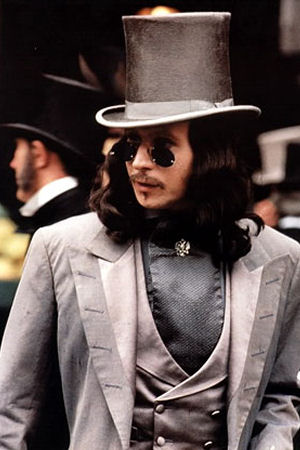


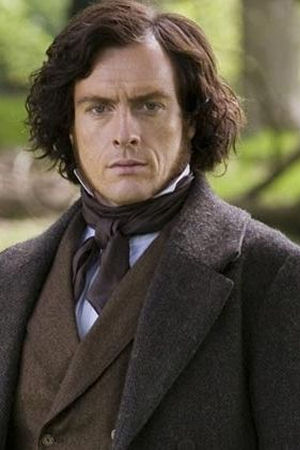
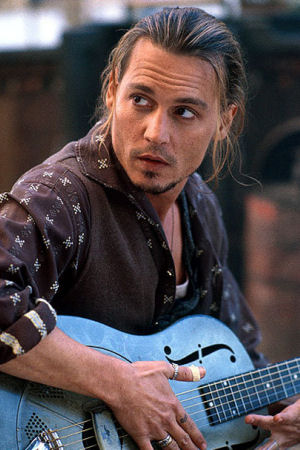

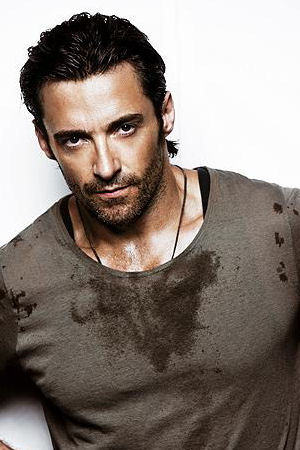
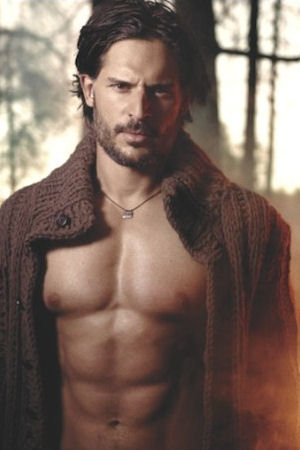
Commenti recenti
7 anni 18 settimane fa
7 anni 18 settimane fa
7 anni 18 settimane fa
7 anni 18 settimane fa
7 anni 18 settimane fa
7 anni 19 settimane fa
7 anni 19 settimane fa
7 anni 19 settimane fa
7 anni 19 settimane fa
7 anni 19 settimane fa